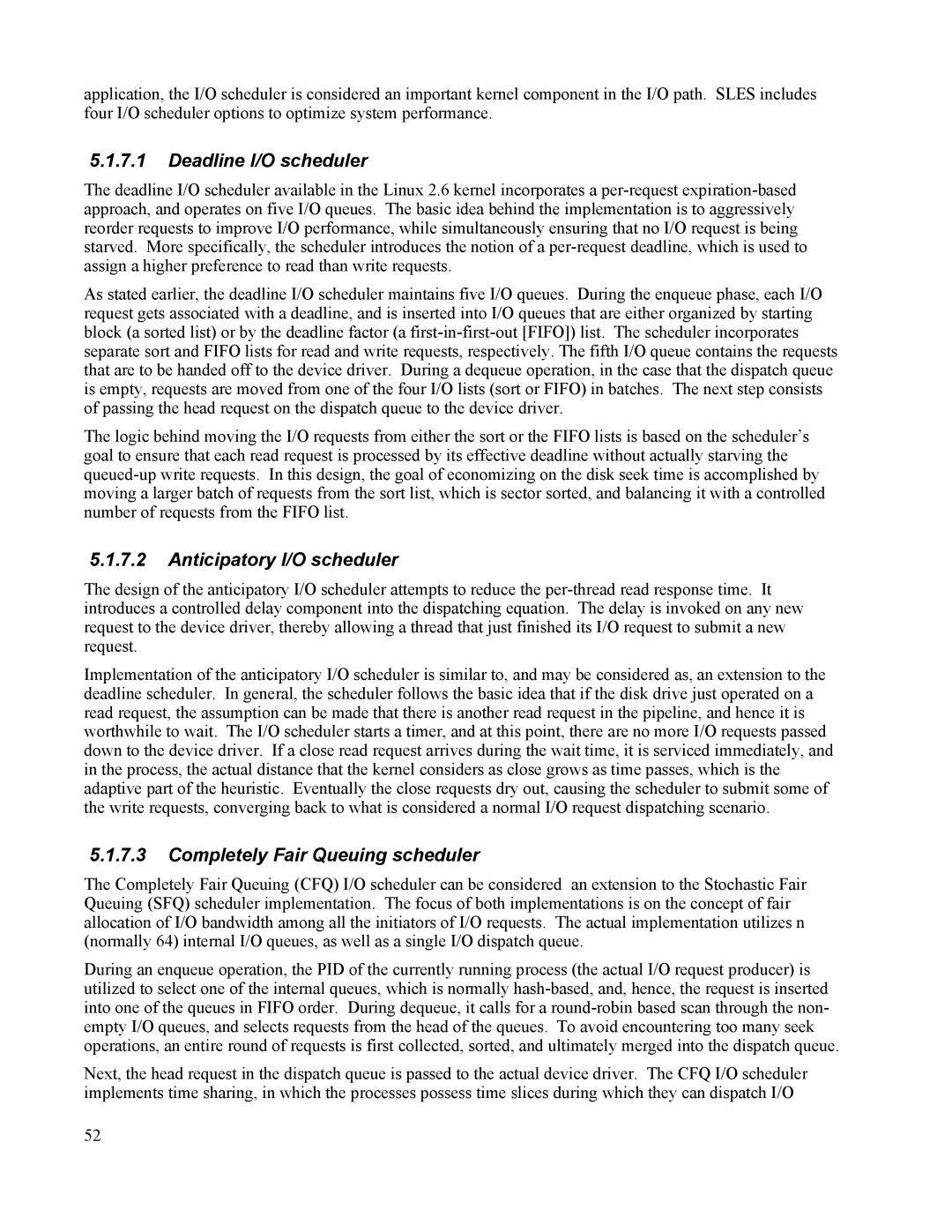application, the I/O scheduler is considered an important kernel component in the I/O path. SLES includes four I/O scheduler options to optimize system performance.
5.1.7.1Deadline I/O scheduler
The deadline I/O scheduler available in the Linux 2.6 kernel incorporates a
As stated earlier, the deadline I/O scheduler maintains five I/O queues. During the enqueue phase, each I/O request gets associated with a deadline, and is inserted into I/O queues that are either organized by starting block (a sorted list) or by the deadline factor (a
The logic behind moving the I/O requests from either the sort or the FIFO lists is based on the scheduler’s goal to ensure that each read request is processed by its effective deadline without actually starving the
5.1.7.2Anticipatory I/O scheduler
The design of the anticipatory I/O scheduler attempts to reduce the
Implementation of the anticipatory I/O scheduler is similar to, and may be considered as, an extension to the deadline scheduler. In general, the scheduler follows the basic idea that if the disk drive just operated on a read request, the assumption can be made that there is another read request in the pipeline, and hence it is worthwhile to wait. The I/O scheduler starts a timer, and at this point, there are no more I/O requests passed down to the device driver. If a close read request arrives during the wait time, it is serviced immediately, and in the process, the actual distance that the kernel considers as close grows as time passes, which is the adaptive part of the heuristic. Eventually the close requests dry out, causing the scheduler to submit some of the write requests, converging back to what is considered a normal I/O request dispatching scenario.
5.1.7.3Completely Fair Queuing scheduler
The Completely Fair Queuing (CFQ) I/O scheduler can be considered an extension to the Stochastic Fair Queuing (SFQ) scheduler implementation. The focus of both implementations is on the concept of fair allocation of I/O bandwidth among all the initiators of I/O requests. The actual implementation utilizes n (normally 64) internal I/O queues, as well as a single I/O dispatch queue.
During an enqueue operation, the PID of the currently running process (the actual I/O request producer) is utilized to select one of the internal queues, which is normally
Next, the head request in the dispatch queue is passed to the actual device driver. The CFQ I/O scheduler implements time sharing, in which the processes possess time slices during which they can dispatch I/O
52
